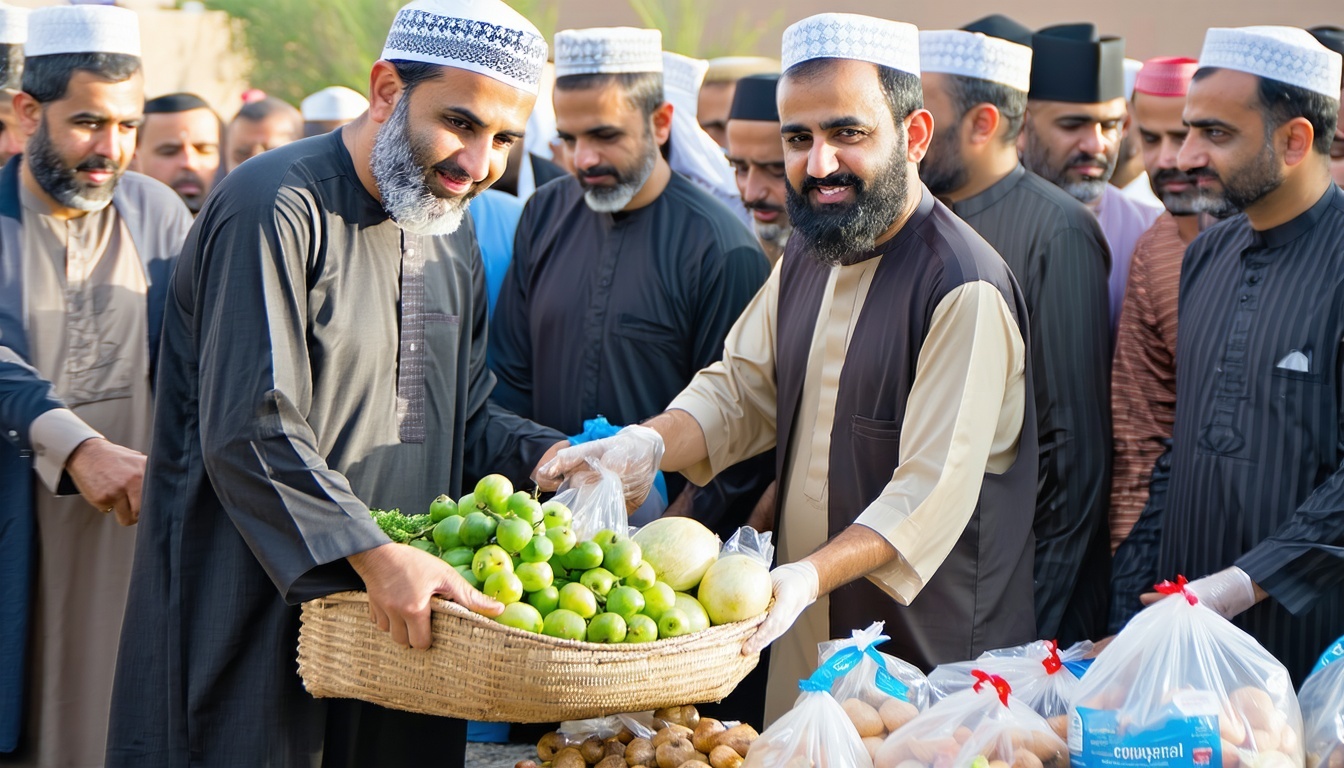
The Importance Of Giving To Charity In Islam
Discover the profound spiritual and societal impacts of charity in Islam and how it compares to the general public's giving habits.
The Spiritual Significance of Charity in Islam
Charity, known as 'Sadaqah' in Arabic, holds a significant place in Islam. It is not merely a philanthropic act but a core tenet of faith. Muslims believe that giving to charity purifies their wealth, fosters empathy, and serves as a form of worship. The Quran and Hadiths emphasize the importance of charity, portraying it as a means to attain spiritual growth and closeness to Allah.
Prophet Muhammad (PBUH) said, 'The believer’s shade on the Day of Resurrection will be his charity.' This highlights the eternal benefits of charity, suggesting that acts of giving will provide protection and comfort in the hereafter. The spiritual significance is further underscored by the belief that charity can ward off calamities and bring blessings in this life and the next.
The Different Forms of Charity in Islam
Islamic charity is multifaceted, encompassing various forms. The most obligatory form is 'Zakat,' which is one of the Five Pillars of Islam. Muslims are required to give 2.5% of their accumulated wealth annually to those in need. This systematic form of charity ensures a continuous flow of support to the less fortunate and helps to reduce economic disparities.
In addition to Zakat, there is 'Sadaqah,' which is voluntary charity. Sadaqah can be given at any time and in any amount. It includes not only monetary donations but also acts of kindness, such as helping a neighbor, offering sincere advice, or even a smile. Another form is 'Waqf,' an endowment made by a donor for religious, educational, or charitable causes, which continues to benefit society indefinitely.
The Societal Impact of Islamic Charity
Islamic charity plays a pivotal role in social welfare and community development. By redistributing wealth, Zakat and other forms of charity help alleviate poverty, provide education, and facilitate healthcare services. This financial support empowers individuals and communities to achieve self-sufficiency and improve their quality of life.
Charity in Islam also fosters social cohesion and solidarity. It bridges the gap between different socioeconomic classes, promoting a sense of unity and collective responsibility. The charitable acts encourage mutual respect and understanding, creating a harmonious and inclusive society.
Comparative Analysis: Muslim Giving vs. General Public
Studies have shown that Muslims tend to give more to charity than the general public. According to a report by the nonprofit organization, National Philanthropic Trust, Muslims in the United States donate an average of $1,810 annually, compared to the general public's average of $1,200. This higher level of giving is attributed to the religious obligation of Zakat and the cultural emphasis on charity.
Furthermore, a survey by the UK's Charities Aid Foundation found that British Muslims give more to charity than any other faith group, with 31% of them donating to charity in a typical month, compared to the national average of 15%. These figures illustrate the profound impact of Islamic teachings on charitable behavior and highlight the community's commitment to philanthropy.
Encouraging Greater Charity: How to Get Involved
For those inspired to contribute, there are numerous ways to get involved in charitable activities. Donating to reputable Islamic charities, setting up a regular Zakat payment plan, or participating in community fundraising events are effective means of giving. Many organizations provide online platforms to facilitate donations, making it easier to support various causes.
Volunteering time and skills is another impactful way to contribute. Engaging in community service projects, mentoring youth, or offering professional expertise to nonprofit organizations can make a significant difference. By embracing the principles of charity in everyday life, individuals can help create a more just and compassionate world.



